Are you diving into the world of commercial agreements and feeling a bit overwhelmed? You're not alone! Many business owners and professionals face challenges when navigating the complexities of legal documents. In this article, we'll explore a handy letter template for requesting a legal review of your commercial agreement, so you can ensure your interests are protected. Keep reading to discover how to craft the perfect request!

Party Identification
A commercial agreement requires precise identification of all parties involved, ensuring clear representation in legal terms. The parties should be explicitly named, including full legal names, business structure (e.g., LLC, Corporation), and registration details with respective governing authorities. For instance, Company XYZ, a registered Limited Liability Company in Delaware, USA, with registration number 12345678, must be accurately detailed. Similarly, individuals, such as John Smith, residing at 123 Main Street, Springfield, Illinois, must include pertinent identification information. This detailed identification solidifies accountability and prevents ambiguities in contractual obligations.
Scope of Agreement
The Scope of Agreement in a commercial contract defines the boundaries and specifications of the partnership between parties. Clearly articulated objectives, deliverables, and responsibilities are essential, providing transparency for both entities involved. For example, if the agreement involves software development services for a tech company in California, the document should specify project timelines, milestones, and expected outcomes, such as software functionality and user interface design. The agreed compensation structure, including payment milestones and penalties for delays, is crucial to enforce accountability. Additionally, confidentiality clauses regarding proprietary information must be clearly stated to protect intellectual property. This structured approach ensures alignment and minimizes potential disputes throughout the duration of the agreement.
Intellectual Property Rights
Intellectual Property Rights (IPR) are crucial components in commercial agreements, outlining ownership, usage, and protection of creative assets. In the context of agreements, such as a licensing deal or a partnership in technological development, IPR specifies rights over patents, copyrights, trademarks, and trade secrets. Companies involved, like Apple Inc. or Microsoft Corp., typically negotiate terms governing the exploitation and commercialization of innovations, ensuring adequate protection against infringement. The jurisdiction, often referenced as United States law or European Union directives, plays a significant role in determining enforcement mechanisms and dispute resolution processes. Clear delineation of responsibilities regarding IP management is vital, including clauses addressing potential licensing fees, duration of rights, and transferability to third parties. Parties must also consider the implications of international treaties, such as the TRIPS Agreement, which standardizes IP protections among member countries, enhancing the framework for legal review in commercial dealings.
Confidentiality Obligations
Confidentiality obligations in commercial agreements serve to protect sensitive information shared between parties during negotiations or collaboration. Such obligations typically specify what constitutes confidential information, including trade secrets, business plans, financial data, and customer lists, often applying to documents marked as "confidential" or discussed in private settings. Duration of confidentiality should be clearly defined, often ranging from one to five years post-termination of the agreement, depending on industry standards. Parties must outline permitted disclosures, such as legal requirements or disclosures to employees on a need-to-know basis, while including penalties for breaches, which may range from monetary damages to injunctive relief. Additionally, the agreement may require return or destruction of confidential materials upon termination, ensuring no sensitive information remains with the departing party. Jurisdictions, such as New York or California, may impose specific legal frameworks that influence the enforceability of these obligations, impacting how parties approach their confidentiality commitments.
Dispute Resolution Mechanism
Dispute resolution mechanisms in commercial agreements play a crucial role in ensuring that conflicts are resolved efficiently and effectively. These mechanisms can involve alternative dispute resolution methods, such as mediation or arbitration, often outlined in detail within the agreement. Common venues for arbitration include established institutions like the International Chamber of Commerce (ICC) or the American Arbitration Association (AAA), with specific rules for proceedings. Mediation, on the other hand, typically requires the involvement of a neutral third-party mediator who facilitates communication between disputing parties. Jurisdictions often dictate the enforceability of these mechanisms; for instance, international agreements may rely on the New York Convention for the recognition of arbitration awards. Clearly defining applicable laws, timelines for resolving disputes, and the allocation of costs associated with the resolution process can significantly impact the outcome and efficiency of dispute resolution in commercial contracts.

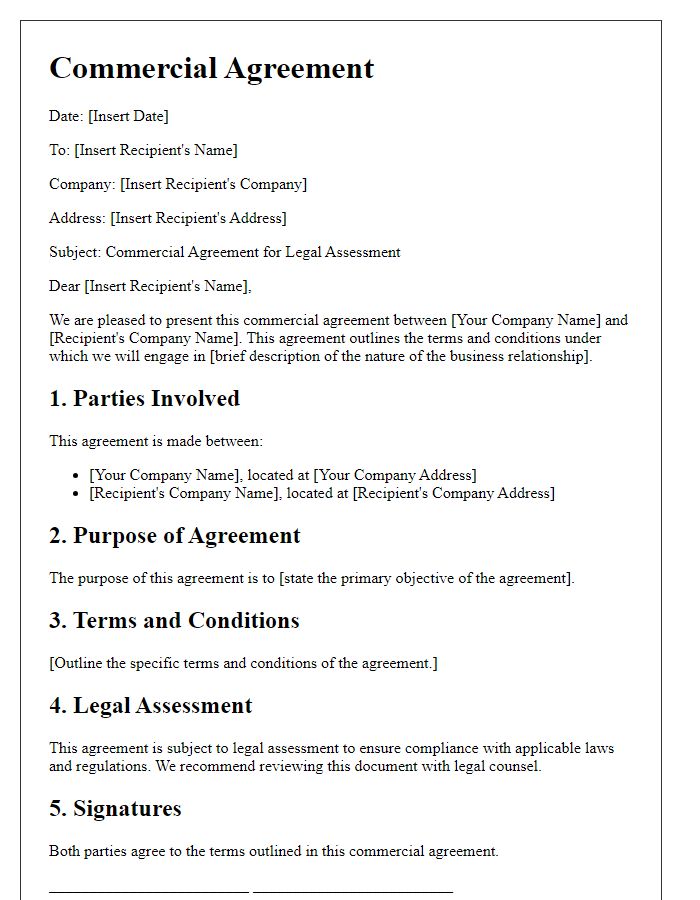
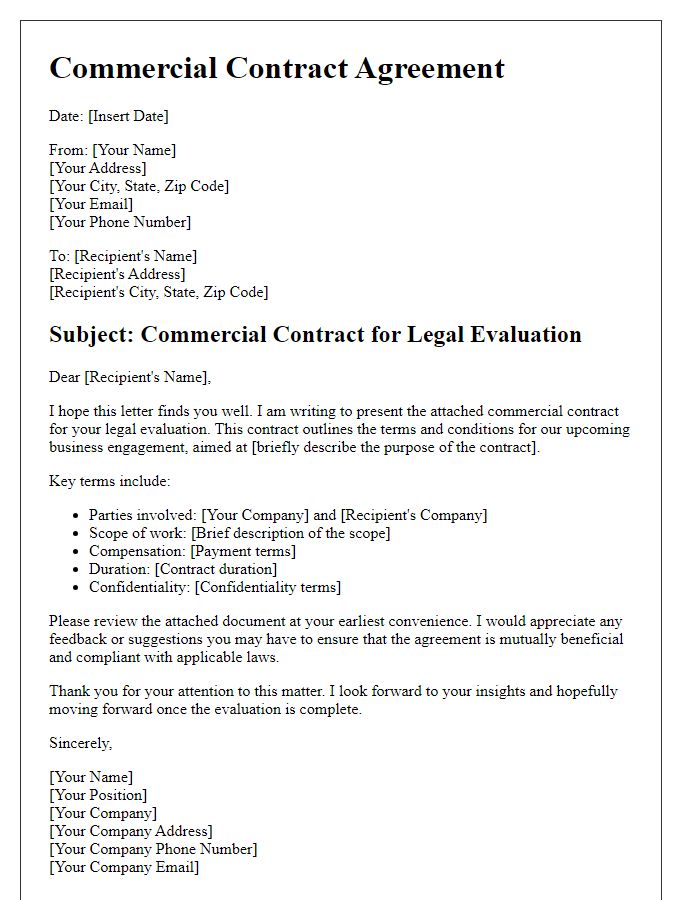
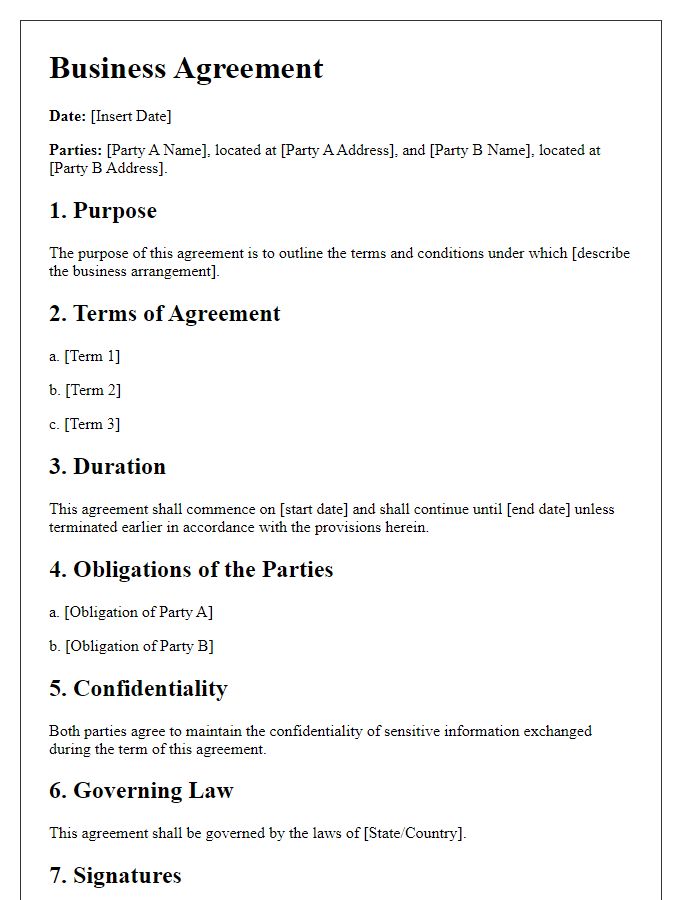
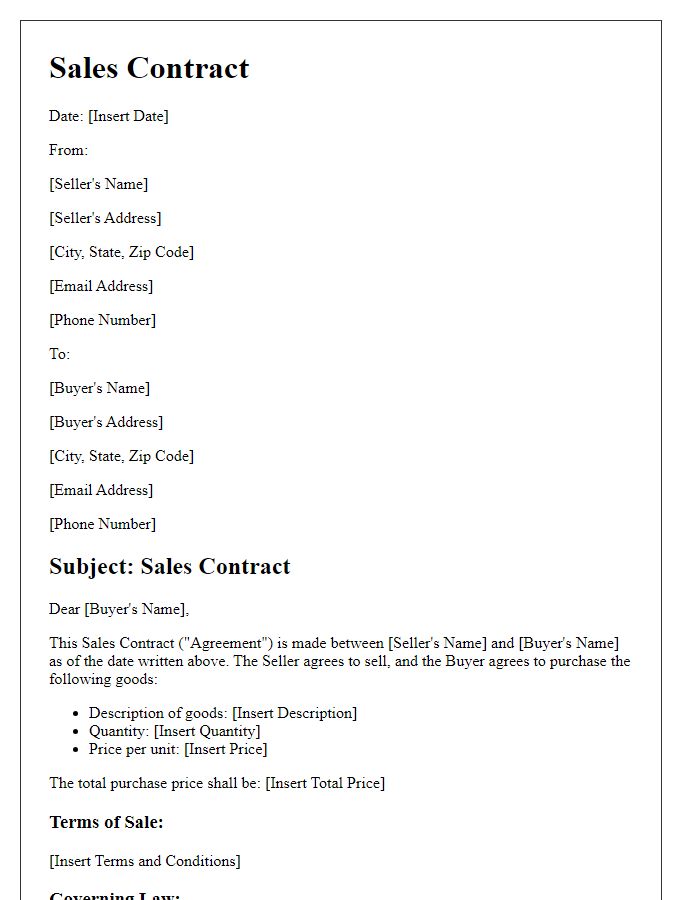
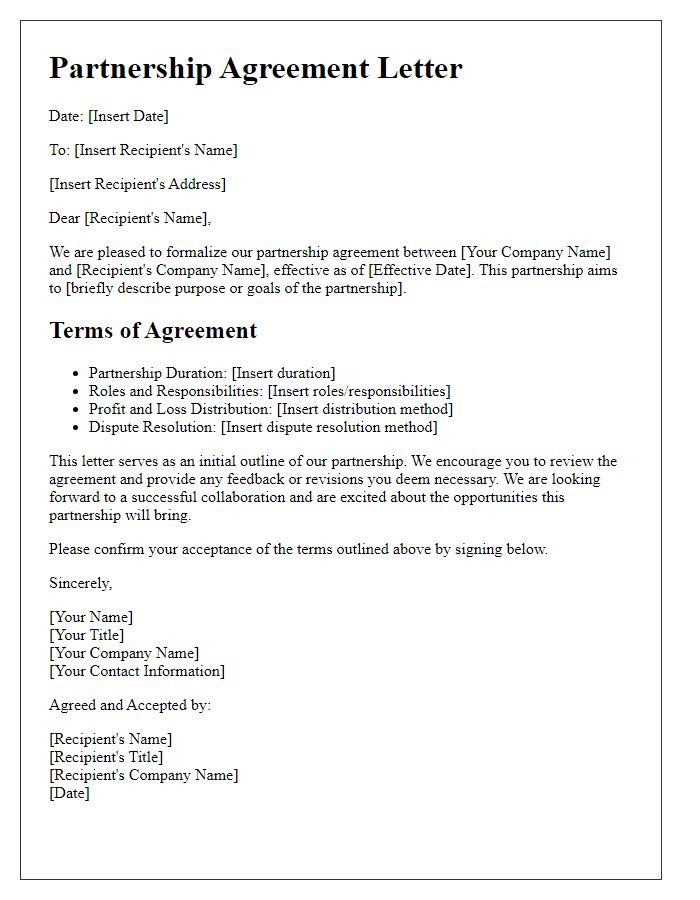
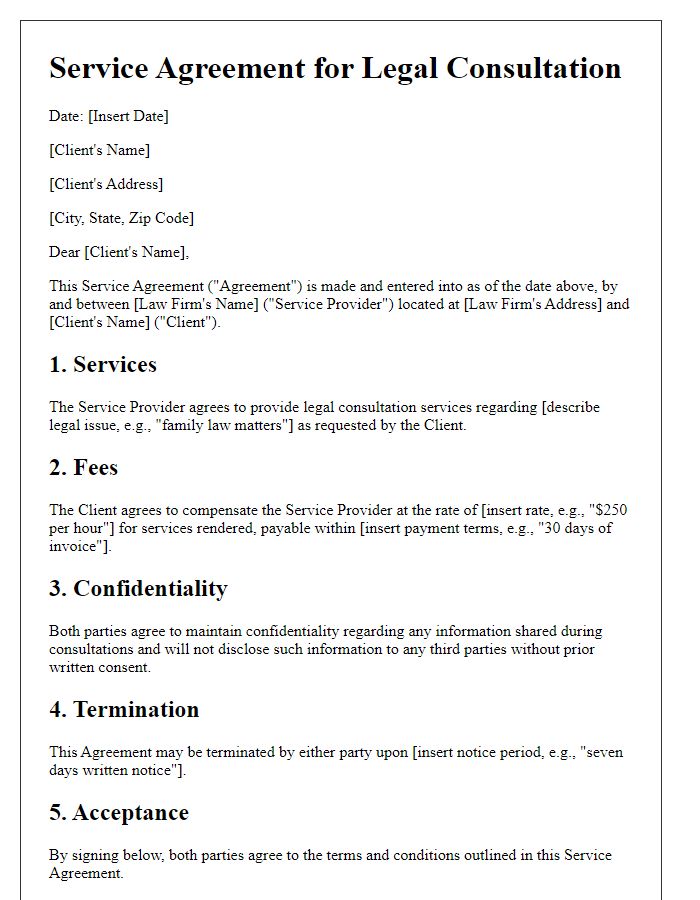
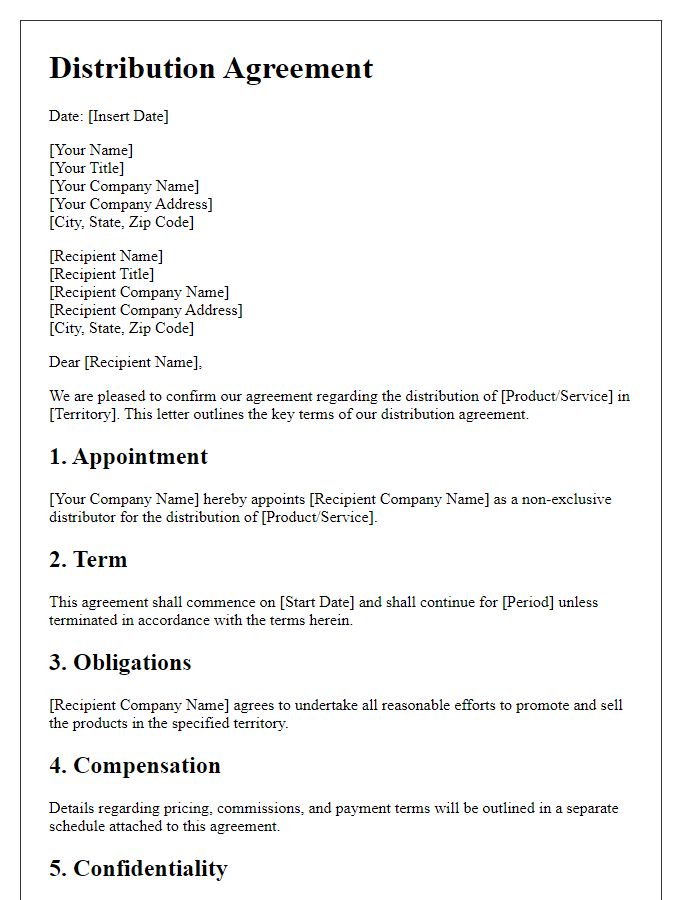
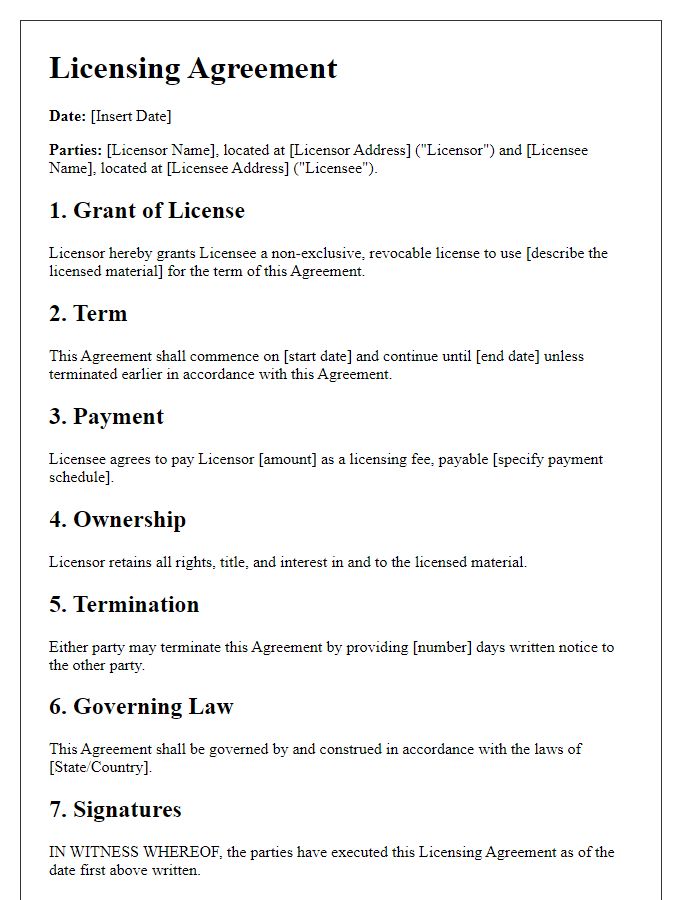
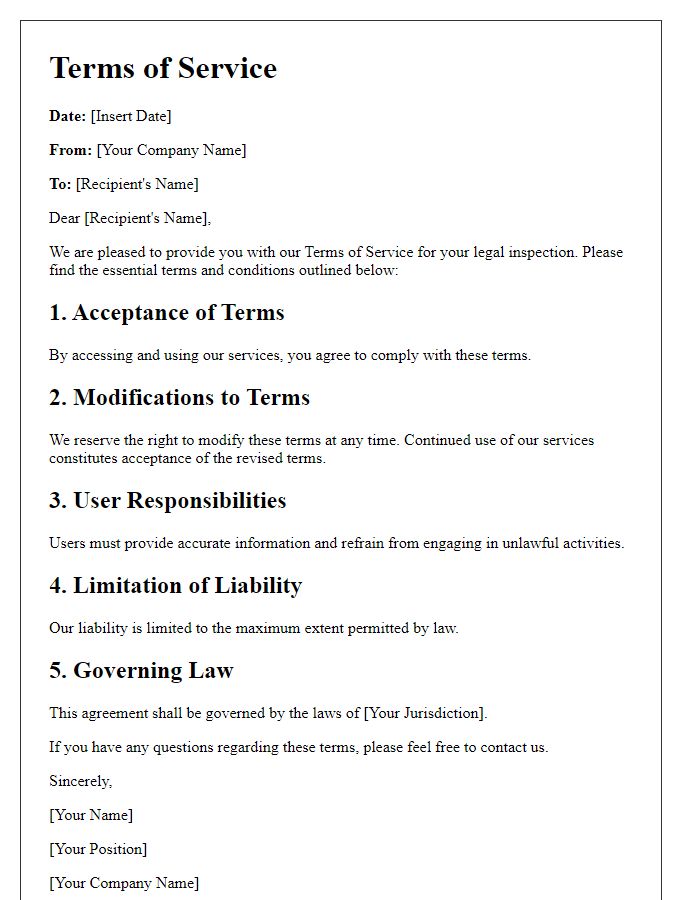
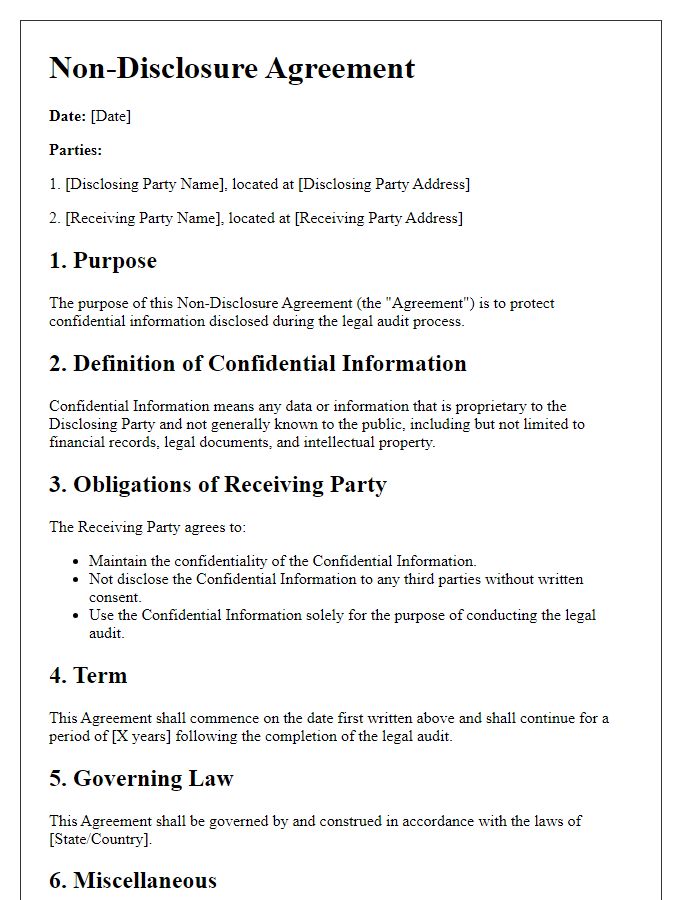


Comments